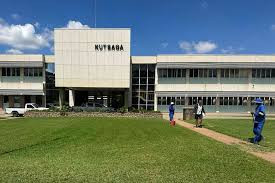Forex auction backlog: RBZ misses target
The Reserve Bank of Zimbabwe is working “frantically” to clear the foreign currency auction backlog running into tens of million, but has missed end of May target set by President Mnangagwa, according to central bank governor Dr John Mangudya.
This is not the first time the central bank has missed a set target to expunge the auction backlog, which Dr Mangudya once described as a moving target.
Zimbabwe introduced the foreign currency auction system (auction) in June 2020 amid expectation that the platform would help in exchange rate discovery.
At the time the auction was introduced, the central bank said “the adoption of a foreign currency auction system is expected to bring transparency and efficiency in the trading of foreign currency in the economy”.
But more than two years after, the country continues to face exchange rate challenges with the bulk of the foreign currency trading on parallel market.
The gap between the auction exchange rate and that of the parallel market has remained wide and reached 153 percent in the first week of May 2022 before coming down to approximately 60 percent, currently.
Economic agents blamed the rallying parallel market exchange rate on the central bank’s failure to adhere to a true Dutch Auction system as well as the promises made when the auction was introduced.
When the Auction was introduced, the RBZ promised to settle winning bids on a T+1 basis.
“The Bank will transfer the foreign currency to the Nostro account of the winning bidders’ Authorised Dealer, after receiving the ZW$ equivalent.
“In line with international best practice, settlement of funds transferred to the Nostro account will be on a T+2 basis,” reads part of the RBZ report signed by Dr Mangudya on the 17th of June 2020.
The central bank, however, failed to adhere to these dictates and sold foreign currency it didn’t have, resulting in a massive backlog that has crippled cash flows and working capital for importers.
Confederation of Zimbabwe Industries president, Kurai Matsheza, is on record saying “the backlog had exacerbated an already dire industrial machinery crisis”.
“Businesses have got to survive and can’t wait for long to really bring in whatever, be it equipment or raw materials.
“Obviously, the reserve bank has got to allocate what is available so that these backlogs do not grow,” Matsheza told a local publication sometime in March.
On May 7, President Mnangagwa, however, ordered the central bank not to allot unavailable foreign currency. Announcing measures to restore investor confidence as well as to strengthen demand for local currency, President Mnangagwa also promised that “Government will provide sufficient resources to clear the auction allotment backlog by the end of this month (May).”
But according to Dr Mangudya the May deadline has since been missed with approximately US$135 million still in arrears. Describing expunging the backlog as a process than an event, Dr Mangudya said the apex bank was “working frantically well” to clear it.
“We are continuously paying, this is not like an event, it’s a process, and we are paying on a daily basis.
“Right now, thumb suck, I think we are down now to US$135 million,” said Dr Mangudya on the sidelines of the signing ceremony for a €12,5 million line of credit extended to First Capital Bank by the European Investment Bank. Dr Mangudya, however, implied the May target announced by President Mnangagwa has been missed. Our idea is that this month, this June we are starting, we need to finish everything,” Dr Mangudya said.
The central bank governor also revealed that the central bank was going to incur exchange rate losses stemming from the foreign currency backlog.
Most of the forex backlog is for funds allotted when the exchange rate was below $165,99 and yet the apex bank is now buying foreign currency at $304 as of Wednesday’s willing buyer willing seller exchange rate.
This is after President Mnangagwa said the liquidation of the surrender portion of export proceeds will be settled using the interbank rate established through the willing-buyerwilling seller exchange rate system.
Assuming the remaining backlog of US$135 million is for forex allotted at $165,99 the exchange loss would amount to more than $18,6 billion (US$61,18 million).
Dr Mangudya said the losses, just like any other debt incurred by the central bank, will be assumed by the Government.
“It’s called exchange losses, that is also true for blocked funds, the blocked funds were at 1:1, but we are buying currency at current exchange rates.
Meanwhile, the number of participants on the auction system has significantly reduced to just 285 from an average 450 prior to president Mnangagwa’s measures.
Last week, Finance and Economic Development Minister Mthuli Ncube told Business Weekly the central bank only has roughly US$25 million available for sale on a weekly basis. And in a private conversation, a senior Government official said the significant reduction in the number of participants on the auction means “rogue bidders or arbitrage bidders are slowly leaving the market as the margin is narrowing”.
He said Government is exploring “further mechanisms to stop fraudulent discharge of
import documents where no goods or services have been received in the country”.-eBusiness Weekly












